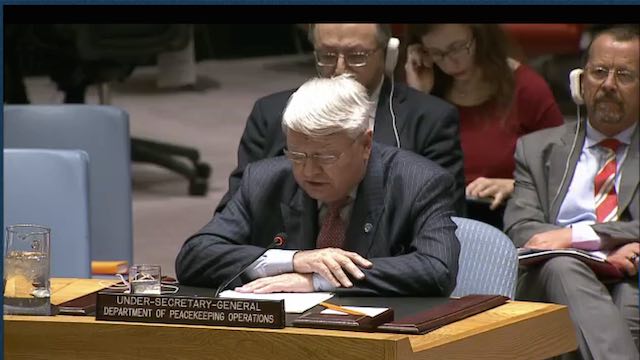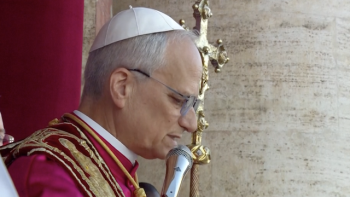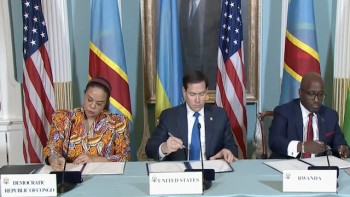Military operations targeting Rwandan rebels in the Democratic Republic of the Congo (DRC) would require a lot of time and must not result in “devastating consequences” to the population, as had occurred during a 2009 Congolese action against the rebels, UN Peacekeeping Missions Head, Herve Ladsous, has warned the United Nations Security Council on January 22, 2014 during a briefing on the situation on security in the DRC.
The briefing evolved around the gradual withdrawal of UN Peacekeeping troops in Congo, known as the United Nations Organization Stabilization Mission in the Democratic Republic of the Congo (MONUSCO).
The peacekeeping mission has been in the DRC for the last 15 years and has spent tens of billions of dollars. Yet, peace has remained elusive, and the DRC Government and the Congolese people, especially those in the Eastern DRC where insecurity remains high have become more and more impatient. The DRC Government Representative at the UN Security Council briefing, Gata Mavita wa Lufuta, expressed the feeling by saying that "Fifteen years is a whole lifetime. All that we ask is that we be treated as adults."
Since 1996, several military operations, some qualified as “acts of genocide” by the United Nations have deliberately and systematically targeted Rwandan refugees, leading to millions of dead, including Congolese civilians.
These operations, including the systematic massacres of refugees in 1996-1997 by Rwandan Defense Forces, then known as Rwandan Patriotic Army and Umoja Wetu, Kimia I and Kimia II of 2009-2010, have all failed to bring peace in the region. Instead, they have led to human tragedy, massacres and more instability in the region. Moreover, these military operations have wasted resources.
Regarding military operations against Rwandan rebels of teh FDLR, the DRC Government representative said that it is up to the FARDC, the Congolese army, to come up with a strategy to deal with combattants without harming the civilians, whereas Herve Ladsous alluded to the envisioned imminent action with Congolese forces against the FDLR.
"In passing, I must say that military operations against FDLR must start now. But at the same time, we need to recognize and take into account that achieving tangible results against the FDLR will require both resources and time. As you know, the nature of this group is that it is dispered and immersed within the local population. So it would take take and we need to make sure we avoid the repetition of what happened in 2009, when the FARDC had undertaken operations against the same group, against the FDLR, which led to absolutely devastating human consequences."

















